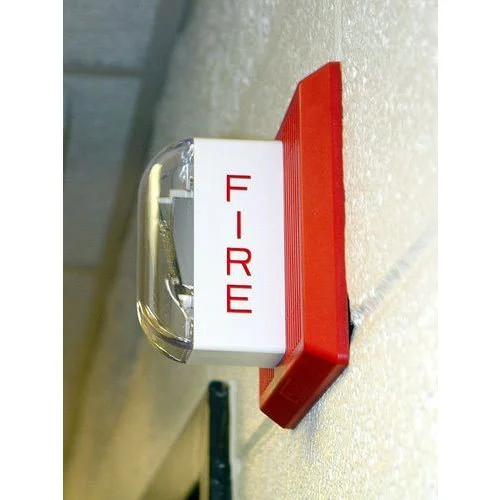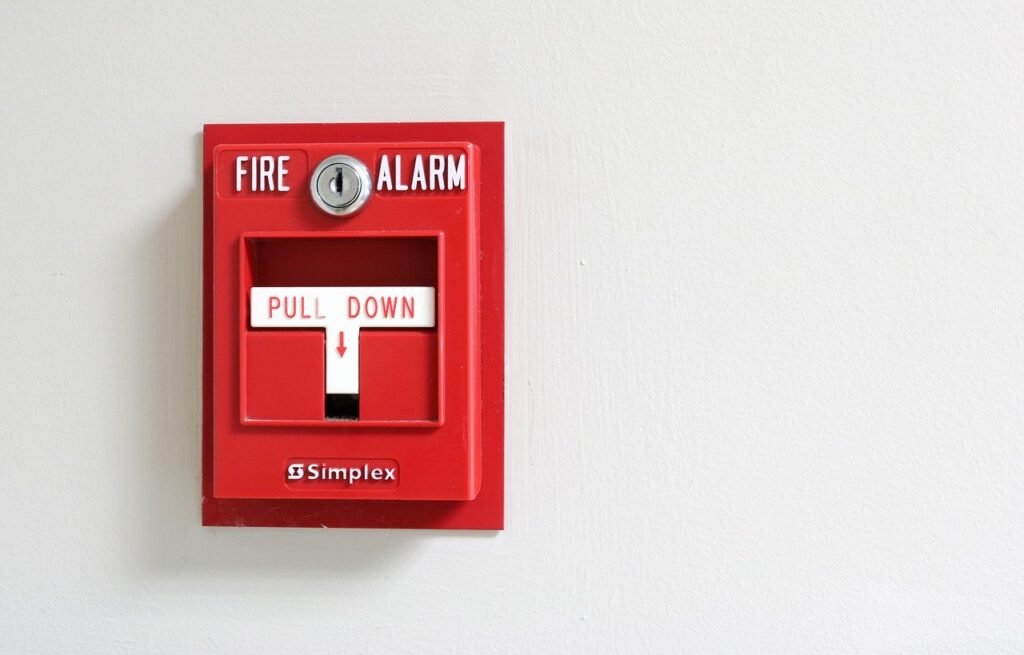Introduction
Fire safety is one of the most important aspects of any small business. One fire can lead to significant destruction—physical and otherwise. Small businesses must balance affordability with safety. The installation of a fire alarm system is not only a legal requirement—it is a running thread throughout all our lives saving our lives and protecting our assets.
Small business owners, however, have concerns about the expenses involved in fire protection systems. There are several affordable and reliable fire alarm systems available for small-scale businesses. This guide outlines the best choices, factors to look for, and how to make sure your business is protected without compromising on budget.
Basics of Fire Alarm System
A fire alarm system is a set of devices working in conjunction for the detection and warning of fire hazards, as with smoke or heat detection, that are set up within buildings. This Fire Alarm systems comprises of a smoke detectors, heat sensors, control panels, and sounders. When triggered, these systems alert people in the building, leading them to evacuate and stemming the alerts to emergency services if needed.

Types of Fire Alarms:
- Manual Fire Alarms – Depend on a person to activate the alarm manually (pressing a call point).
- Automatic Fire Alarms – Senses smoke or heat and triggers without need of people.
- Hybrid Systems – Merge the strengths of manual and automatic systems to offer broad coverage.
Essential Elements of a Fire Alarm System
- Control Panel: The fire alarm system brain, receives inputs from detectors, and controlling alarm signal.
- Smoke Detectors and Heat Sensors: Enables detection of smoke, heat, or fire particles which then sends signals to the control panel
- Static Call Points: Devices that allow individuals to manually activate alarms in the event of fire detection.
- Alarm Sounders and StrobesAudible and visual alerts to warn individuals to evacuate.
- Signals: Forward to fire departments or external monitoring services
Affordable Fire Alarm Systems for Businesses
Installing a fire alarm system comes with a number of advantages.
- Early Detection: Provides an early warning, preventing excessive damage from fire.
- Regulatory Compliance: Fire Alarm Systems are a requirement for commercial property in many countries.
- Lowered Insurance Premiums: Often times, insurance companies will give lower premiums to businesses that have the necessary fire protection.
- Employee and Customer Safety: Saves lives through evacuation in time.
Considerations for Selecting a Fire Alarm System
When considering a fire alarm system, consider the following:
- Business Size and Layout: Fewer detectors are needed in a small office than in a warehouse.
- Budget: Choose systems that can scale up.
- Regulations: Check local fire codes so the system is compliant.
- Future-Proof: Choose Fire Alarm Systems that will expand with your business.
Best Fire Alarm Systems for Small Business
Finding the right fire alarm system can be confusing, but there are affordable systems which will protect you without compromising quality. Fret no more: here are some of the best Fire Alarm systems for small businesses:
Kidde i9040 Fire Alarm System
- Price range: $20 — $50 per unit
- Features: Battery-powered smoke detector, ionization technology for quick fire detection.
- Best For: Small offices, retail shops, and budget installations.
Why It’s Special: Low-cost, simple to install, and requires little maintenance.
First Alert 3120B Hardwired Smoke Alarm
- Price: $40 – $70 per unit
- SENSORS: Photoelectric and ionization dual-sensor technology to protect against a wide range of fire types.
- Best For: Industrial spaces and offices.
Why It’s a Winner: Accurate precision and a hardwired connection keeping it from losing power longevity.
Honeywell Notifier
- Cost: $300 to $1,500 (system size dependent)
- Scalable–Features that integrate with larger security Fire Alarm Systems, allowing users to expand; modular design
- Ideal For: Warehouses, big offices and mixed-use spaces.
Why It’s Unique: Expandable as the business grows.
FireAngel ST-622Q Smoke Alarm
- Price Range: $30 – $60
- Features: Thermoptek sensor technology; approved for sensing very fast and slow fires.
- Best For: Boutique stores and cafés.
Why We Love It: Inexpensive, small, and lasts a long time (10-year battery).

Installation: DIY or Professional
For small business owners looking to cut costs, it’s critical to weigh the decision of whether to hire a professional versus doing the installation yourself(Affordable Fire Alarm Systems for Businesses). Here’s a breakdown:
DIY Installation
Pros:
- Lower upfront costs.
- Simplicity systems like battery-fired alarms are easy to prepare.
- No labor charges.
Cons:
- Prevented if installed properly.
- Limited scalability.
- Certain systems could violate fire codes.
Best For: Small spaces, such as a single-room office or pop-up shops.
Professional Installation
Pros:
- Delivers compliance with fire codes and regulations.
- Full coverage with complex layouts
- Available monitoring and maintenance options.
Cons:
- Higher initial cost.
- Potential scheduling delays.
Best For: Warehouses, multi-room offices or companies with specialized needs.
Cost Breakdown:
- DIY Installation: $50 – $300 (Depending on system size)
- Professional Installation: $500 – $2,000, including labor and materials.
Maintenance and Testing
Regular maintenance helps keep the fire alarm systems functioning when needed most during emergency situations. Many local regulations require routine testing and inspections(Affordable Fire Alarm Systems for Businesses).
Key periodic maintenance checklist:
- Monthly: Test all smoke detectors and alarms by pushing the “test” button.
- Quarterly: Check control panels for error codes or glitches.
- Once per year: Have detectors and sensors professionally inspected and cleaned.
- For battery-operated alarms, check and replace batteries every 6 to 12 months.
Common Fire Alarm Issues:
- Dust or insects triggering false alarms.
- The alarm failure caused by battery depletion
- Sensor obstruction (furniture or equipment blocking the sensor).
- Local, State, and Federal Grants and Funds
- Grants or financial assistance are available to small businesses to install or upgrade systems to include a fire alarm.
Available Programs:
- Small Business Administration (SBA): Provides low-interest loans to make safety upgrades.
- Local Fire Departments: Some offer subsidies or free consultations.
- Reimbursement Program: Fire safety expenses can be deductible to businesses depending on the tax codes.

How to Apply:
- Look for local, state, or federal programs.
- Call local fire departments for recommendations.
- Draft detailed cost estimates and project plans prior to applying.
Examples of Small Businesses
Case Study 1: Fire Prevention Success at a Local Bakery
- Your training data goes up till October 2023.
- Fix: FireAngel ST-622Q system installed.
- Outcome: A fire was extinguished early before causing over $15,000 in damages.
Case Study2: Commercial Building Upgrades
- Challenge: How to ensure even fire alarm coverage in a 3-floor office?
- Professionally installed Honeywell Notifier system.
- Outcome: Reduced insurance premiums due to comprehensive coverage.
FAQs:
What is the best fire alarm for a small office?
The First Alert 3120B offers dual sensor technology and is a great budget-friendly purchase.
How regularly should fire alarms be tested?
Check alarms monthly and arrange for annual professional inspections.
Are wireless fire alarms effective?
Yes, modern wireless Fire Alarm Systems are as reliable as wired systems and are easier to install.
Is it really up to the inspector to test a fire alarm?
It is essential to have these immediately repaired or replaced in order to continue being compliant.


